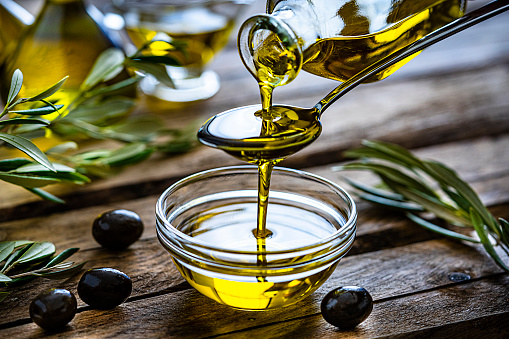The Wonders of Olive Oil: Health Benefits and Culinary Uses

Olive oil is a staple ingredient in Mediterranean cuisine and has been prized for its health benefits for centuries. It is extracted from the fruit of the olive tree, and its many varieties can range in flavor from mild and buttery to bold and peppery. In this article, we’ll explore some of the many health benefits of olive oil, as well as some of the culinary uses that make it such a versatile ingredient in the kitchen.
Health Benefits of Olive Oil
Olive oil is a rich source of monounsaturated fatty acids, which have been linked to a range of health benefits. Here are just a few of the ways that olive oil can improve your health:
- Heart Health: Studies have shown that olive oil can help to reduce the risk of heart disease by lowering cholesterol levels and improving blood vessel function.
- Cancer Prevention: Olive oil is rich in antioxidants, which can help to protect the body against cancer and other diseases.
- Anti-Inflammatory Properties: The polyphenols found in olive oil have been shown to have anti-inflammatory properties, which can help to reduce the risk of chronic diseases like arthritis and type 2 diabetes.
- Improved Digestion: Olive oil can help to improve digestion and reduce the risk of digestive issues like constipation and acid reflux.
Culinary Uses of Olive Oil
In addition to its many health benefits, olive oil is also a versatile ingredient in the kitchen. Here are just a few of the ways that you can use olive oil in your cooking:
- Salad Dressings: Olive oil makes a great base for salad dressings, and can be combined with vinegar, lemon juice, or other ingredients to create a range of delicious dressings.
- Sauteing and Frying: While extra-virgin olive oil is not suitable for frying due to its low smoke point, other types of olive oil such as pure or light olive oil have a higher smoke point and are more suitable for frying and sauteing.
- Dipping Oil: Olive oil can be served as a dipping oil for bread or vegetables, and can be seasoned with herbs and spices for added flavor.
- Baking: Olive oil can be used in baking recipes that call for oil or butter, and can add a rich, nutty flavor to cakes, breads, and other baked goods.
Conclusion
Olive oil is a true wonder of the culinary world, offering a range of health benefits and culinary uses. Whether you’re looking to improve your heart health, reduce inflammation, or simply add some flavor to your cooking, olive oil is a versatile and delicious ingredient that should have a place in every kitchen. So the next time you’re at the grocery store, be sure to stock up on this Mediterranean staple and start exploring all of the ways that you can incorporate it into your cooking.
